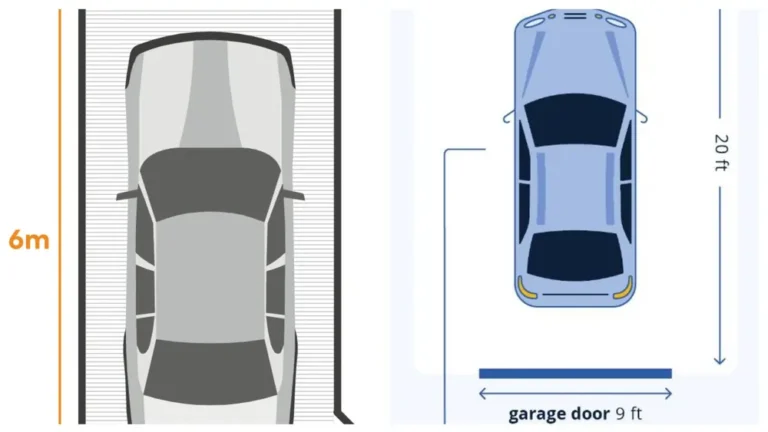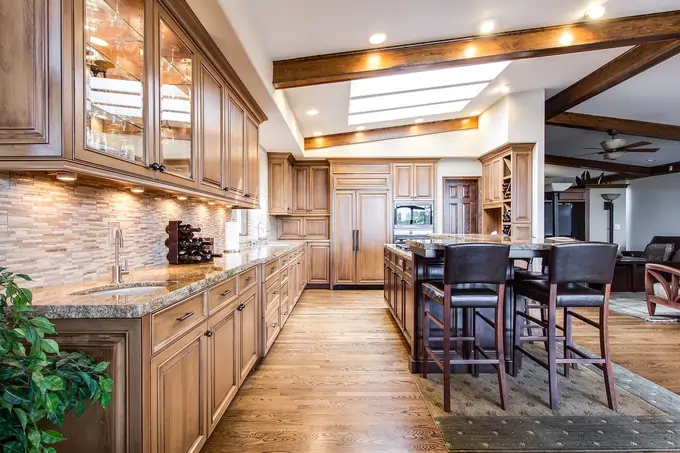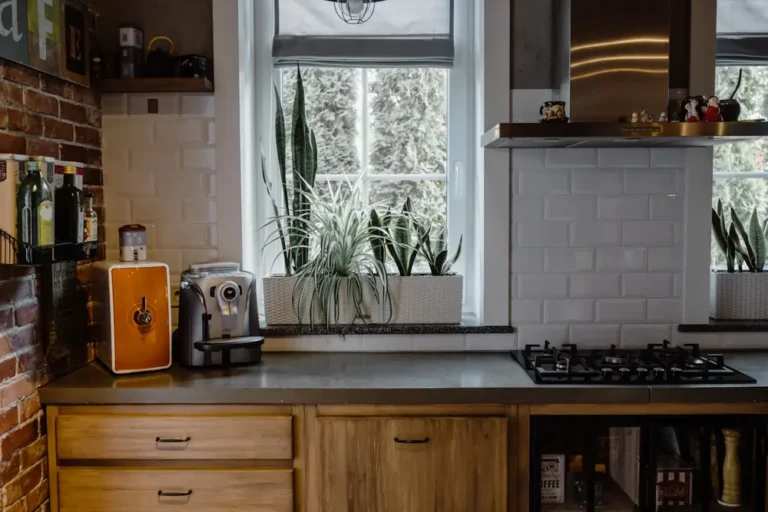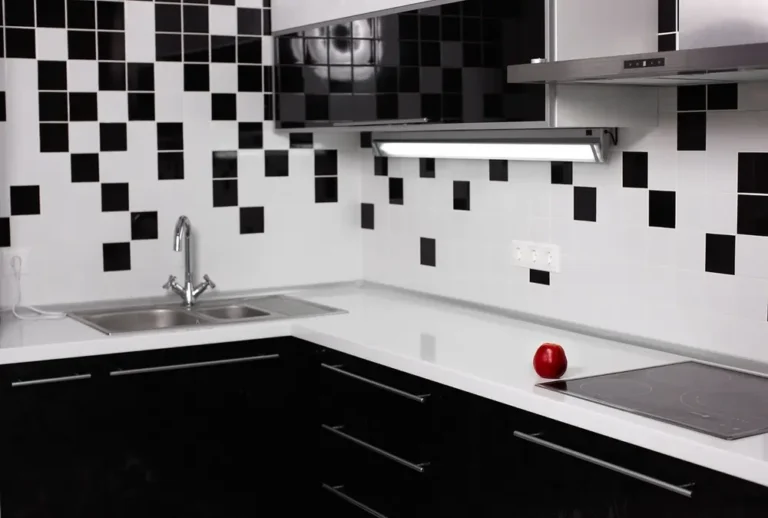Are you struggling to fit your car into your garage? Do you find yourself constantly shuffling items around just to park? You’re not alone. Many homeowners face the challenge of maximizing their single car garage size. In 2024, understanding the right dimensions for your garage is more crucial than ever.
Let’s dive into the world of single car garage dimensions and discover how to make the most of your space.
Single Car Garage Dimensions
Have you ever struggled with fitting your car, bike, and tools into a cramped garage? You’re not alone! Understanding the right single car garage dimensions can make a world of difference. Whether you’re building a new garage or reconfiguring your existing one, it’s essential to know the proper height, width, and depth to ensure your car fits comfortably while leaving room for storage. Let’s break it down, so you can plan for both practicality and convenience!
Standard Single Car Garage Dimensions
When sizing your garage, the standard single-car garage dimensions are usually 12 feet wide by 20 feet deep. This one-car garage size gives you just enough room to park your car and maybe store a few items. The minimum single-car garage size is typically 12 feet wide and 20 feet deep, which equals 240 square feet.
An average garage size for a single-car garage might be around 16 feet wide and 24 feet deep, providing extra space for storage or a workbench. If you’re considering a detached garage, the dimensions might vary, but a common size is 12 feet wide by 20 feet deep. For an attached garage, the size of a one-car garage would be about the same.
If you need more room, a two-car garage or even a three-car garage might be the right size for you. A standard 2 car garage is usually around 24 feet wide by 24 feet deep, giving you 576 square feet. For those with a smart car or smaller vehicle, a single-car garage might be oversized, but it provides ample room to move around and store items.
Whether you opt for a prefab garage or have a custom garage builder create your dream space, understanding the common sizes and dimensions can help you choose the right type of garage. From a barn garage to an oversized garage, knowing the standard size and many square feet options will ensure you have the perfect spot to park your car and use the garage efficiently.
Common width, height, and depth for a single car garage in 2024
The standard one-car garage typically measures:
- Width: 12 feet
- Depth: 20 feet
- Height: 7 to 8 feet
These dimensions create a space of about 240 square feet, which is generally sufficient for most vehicles. However, is this truly enough for your needs?
Why dimensions might vary based on vehicle size and storage needs
 While these measurements work for many, they’re not set in stone. Your ideal garage dimensions depend on various factors:
While these measurements work for many, they’re not set in stone. Your ideal garage dimensions depend on various factors:
- Vehicle size: A compact car needs less space than an SUV.
- Storage requirements: Do you need room for tools, bikes, or a workbench?
- Future plans: Thinking of upgrading to a larger vehicle?
Examples of how different cars fit into standard garage sizes
Let’s look at some real-world examples:
- A Honda Civic (14.8 feet long) fits comfortably in a 20-foot deep garage.
- A Ford F-150 (19.3 feet long) might require a 22-foot depth for easy access.
But what if your garage doesn’t quite match up? Don’t worry, we’ll explore solutions shortly.
Factors to Consider When Designing a Single Car Garage
When choosing a garage size for your home, there are a few things to consider. A typical one-car garage is about 12 feet wide and 22 feet deep. However, you might find that a smaller garage works if you have a compact car.
The width of a single-car garage can vary, but a common garage is 12 feet wide. If you need more space, consider a garage that fits a larger vehicle, which might be 18 feet wide by 20 feet deep.
For those with more cars, a three-car garage size could be around 32 feet wide by 22 feet deep. Think about how you plan to use your garage, whether you want to convert your garage for extra storage or just need room to open your car doors easily.
Remember, the total garage size is 12 feet by 18 feet wide and 22 feet deep, giving you around 384 square feet of space to work with. Make sure the garage door is wide enough for your vehicle and any additional needs you might have.
How to account for vehicle size, door opening space, and clearance
When planning your garage layout for one car, consider:
- Door swing radius: Allow at least 3 feet of clearance.
- Wall clearance: Leave 2-3 feet on each side for easy entry/exit.
- Front and rear clearance: Aim for 3-4 feet for comfortable movement.
The importance of additional storage space (for tools, bikes, etc.)
 A garage isn’t just for your car. Garage storage solutions are crucial for:
A garage isn’t just for your car. Garage storage solutions are crucial for:
- Seasonal items
- Tools and equipment
- Recreational gear
How wide is a single car garage really? It depends on your storage needs.
Safety considerations: adequate space for emergency exits and movement
Safety should never be an afterthought. Ensure your garage design includes:
- Clear pathways to exits
- Proper ventilation
- Adequate lighting
Remember, a well-designed garage isn’t just about fitting your car—it’s about creating a safe, functional space.
Optimizing Space in a Single Car Garage
So, you’ve got a one car garage and you’re wondering how to make the most of it. First, measure the width of your car and the garage depth. The minimum one-car garage size is usually around 240 square feet.
But your garage is also a storage space, right? Think about using shelving and hooks. Garage costs can vary, but optimizing space doesn’t have to break the bank.
Check out different built-in garage styles and see what fits your needs. Garage sizes range widely, so consult a local garage builder for custom solutions. Whether your garage you want is large or small, smart planning can make your one car garage work like a charm.
Using overhead storage to maximize vertical space
Don’t forget to look up! Overhead storage for garages can be a game-changer:
- Install ceiling-mounted racks for seasonal items
- Use pulleys for bicycles or kayaks
- Consider a loft area for extra storage
Installing shelving and wall-mounted storage solutions
 Make every inch count with smart garage storage solutions:
Make every inch count with smart garage storage solutions:
- Adjustable shelving units
- Pegboard for tools
- Wall-mounted cabinets
Tips for organizing small garages efficiently
Even in a compact space, you can achieve big results:
- Use clear, labeled containers
- Implement a zone system for different items
- Regularly purge unnecessary items
With these strategies, you’ll transform your car storage garage dimensions from limiting to liberating.
Customizing Your Garage Dimensions for Specific Needs
Thinking about customizing the size for your one car garage? It’s totally doable! Whether you need a garage to fit your SUV or want a workshop space, you can design a garage like a pro. A garage is 240 square feet, which is a common single-car garage size, but feel free to go bigger.
How to adjust dimensions based on your lifestyle
Your garage should reflect your life. Consider:
- Hobbies: Do you need a workspace for DIY projects?
- Vehicle type: Planning to buy an electric car that needs a charging station?
- Family size: Will you need space for kids’ bikes or sports equipment?
Custom options for incorporating a workbench or extra storage
Transform your garage into a multi-functional space:
- Add a fold-down workbench for occasional projects
- Install a mezzanine level for additional storage
- Create a modular system that adapts to changing needs
Benefits of adding insulation and weatherproofing in custom garages
 An insulated single car garage offers:
An insulated single car garage offers:
- Energy efficiency: Lower heating and cooling costs
- Comfort: A more pleasant environment for working or hobbies
- Protection: Better safeguarding for your vehicle and stored items
Cost and Material Considerations for Building a Single Car Garage
Average cost of building a single car garage in 2024
The cost to build a garage varies widely:
- Basic prefab: $10,000 – $20,000
- Mid-range custom: $20,000 – $35,000
- High-end custom: $35,000+
Factors influencing cost include materials, location, and customization.
Material options (wood, steel, brick) and how they affect dimensions
Your choice of materials impacts more than just aesthetics:
- Wood: Versatile, but may require more maintenance
- Steel: Durable and allows for wider spans without support
- Brick: Classic look, but may reduce interior space due to wall thickness
Planning for future upgrades or expansions
Think long-term:
- Design with potential expansion in mind
- Choose materials that allow for easy modifications
- Consider pre-wiring for future tech upgrades
By planning ahead, you ensure your garage grows with your needs.
Conclusion
Choosing the right single car garage dimensions involves more than just picking a width and length. It’s about optimizing space for your car, storage, and personal projects, all while staying within your budget. Now that you understand the essentials, you’re ready to make informed decisions and build a garage that works for you. Whether you’re a DIY enthusiast or simply looking for a practical parking solution, the right dimensions make all the difference! If you have any questions or tips from your own experience, feel free to share them in the comments below!
In conclusion, the perfect single car garage dimensions are those that work for you. Whether you’re dealing with a narrow car garage or dreaming of a garage with workshop, the key is to plan carefully and maximize every inch.
Remember, your garage is more than just a place to park—it’s an extension of your home and lifestyle. By understanding the dimensions, considering your needs, and planning smartly, you can create a space that not only fits your car but enhances your daily life.
So, are you ready to transform your garage from a simple parking spot to a multi-functional powerhouse? The journey to your ideal garage starts now. What’s your first step going to be?



